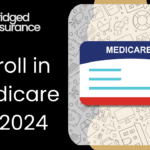Medicare for Senior Citizens: Navigating Retirement (5 Tips)

Retirement brings new chapters, opportunities, and, for many, a shift in healthcare coverage. One of the primary considerations for seniors entering retirement is Medicare, a federal health insurance program for individuals aged 65 and older. Understanding the intricacies of Medicare plans, eligibility criteria, and enrollment options can significantly impact a retiree’s healthcare journey. In this guide, we delve into the essentials of Medicare for senior citizens and offer tips for a seamless transition.
Introduction
Medicare plays a pivotal role in the lives of seniors, providing essential healthcare coverage as they navigate the golden years. It’s important to grasp the fundamentals of Medicare to make informed decisions and maximize benefits. Especially when it comes time to retire.
The Basics of Medicare
Medicare is divided into four parts: A, B, C, and D. Here’s a brief overview of each:
- Part A (Hospital Insurance): Covers inpatient hospital stays, skilled nursing facility care, hospice care, and some home health care.
- Part B (Medical Insurance): Covers certain doctors’ services, outpatient care, medical supplies, and preventive services.
- Part C (Medicare Advantage): Offers an alternative way to get Medicare benefits through private insurance companies approved by Medicare.
- Part D (Prescription Drug Coverage): Helps cover the cost of prescription drugs.
Medicare Eligibility
Most individuals are automatically enrolled in Medicare Part A and B when they turn 65, provided they meet certain criteria. For those who don’t qualify based on age, eligibility may be based on disability status or specific medical conditions.
Enrollment Periods
Understanding the different enrollment periods is crucial to avoid penalties and gaps in coverage:
- Initial Enrollment Period (IEP): Begins three months before your 65th birthday month and ends three months after.
- General Enrollment Period (GEP): If you missed your IEP, you can enroll in Part A and/or Part B between January 1 and March 31 each year, with coverage starting July 1.
- Special Enrollment Period (SEP): Available if you or your spouse are still working and covered by an employer or union group health plan.
Medicare Plans
Medicare for Senior Citizens offers a range of plans to meet diverse healthcare needs. It’s essential to choose a plan that aligns with your health requirements and budget:
- Original Medicare (Parts A and B): Provides hospital and medical insurance.
- Medicare Advantage (Part C): Offers additional benefits and may include prescription drug coverage.
- Medicare Supplement Insurance (Medigap): Helps cover costs not covered by Original Medicare.
Tips for a Seamless Transition
Transitioning into Medicare can be overwhelming, but it doesn’t have to be. Here are some tips for a smooth transition:
- Educate Yourself: Research different Medicare plans, understand their coverage, and compare costs.
- Consider Your Health Needs: Assess your current health status and anticipate future healthcare needs.
- Plan Your Finances: Understand the costs associated with Medicare, including premiums, deductibles, and copayments.
- Review Your Coverage Annually: Healthcare needs evolve, so it’s essential to review your Medicare plan annually and make changes as needed.
- Talk to an expert like myself here.
Conclusion
As you embark on your retirement journey, navigating Medicare is a crucial step. By understanding the basics of Medicare for Senior Citizens, eligibility criteria, enrollment periods, and available plans, you can make informed decisions about your healthcare coverage. Remember, the goal is to secure comprehensive and affordable healthcare that meets your needs during this new chapter of life. Another great resource is the “Medicare and You” handbook which can be downloaded here.
FAQs
- When should I enroll in Medicare if I’m turning 65 in 2024?
–You should enroll during the Initial Enrollment Period (IEP), starting three months before your 65th birthday month. - What penalties might I face for late enrollment?
-Late enrollment may result in higher premiums, especially for Part B and Part D coverage. - Can I change my Medicare Advantage plan after the initial enrollment?
-Yes, the Annual Enrollment Period (AEP) allows changes to Medicare Advantage plans. - How often should I review my Medicare plan?
-Annual reviews are recommended to ensure your plan aligns with your current health needs and budget. - Is assistance available for low-income individuals during the enrollment process?
-Yes, programs like Medicare Savings Programs provide financial assistance as well as others.

 Previous Post
Previous Post Next Post
Next Post